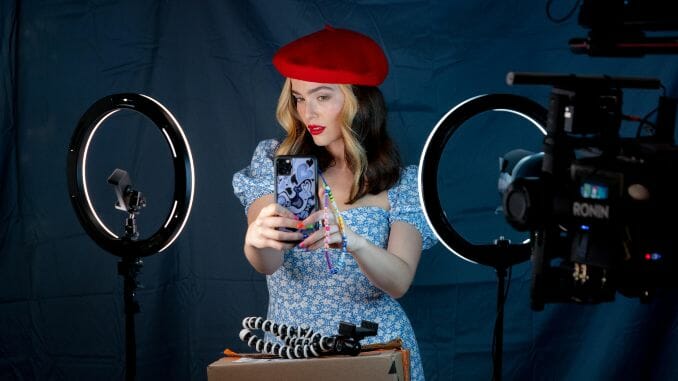Not Okay‘s Dialed-In Satirical Eye Hilariously Roasts Influencer Culture

The intricacies of online cancel culture, appropriation and white privilege are easy fodder for a satire. In a world where laughter is the best way to force the medicine down lest we start a war of the words, an opinion on cultural politics is best served as a caricature of itself, but one that still gets to the heart of its observations. That is where Hulu’s satirical romp Not Okay succeeds in spades. The film is accurate to what it’s portraying, from internet takedowns to Gen Z culture to digital media—and its main focus, the insidious encroachment of white feminism on different facets of the marginalized experience, is particularly laser-focused. The movie is an incessant interrogation of what our young people are becoming, what they want and what the rules are to get it, yet its humor and humility make it stand out as one of the better recent satires.
Not Okay follows Danni (Zoey Deutch), a Caroline Calloway-obsessed, Gen Z, aspiring writer, as she navigates New York. She’s got no friends, no prospects and a dead-end day job as a photo editor for a popular magazine she’d rather be writing for. In a desperate bid for the attention of hot, culturally-appropriating weed blogger Colin (Dylan O’Brien), she fakes a trip to Paris for an exclusive writer’s retreat and shares the whole stay via Instagram, with doctored photos and everything. It all seems to have gone according to plan until tragedy strikes Paris in a way no one expected—and Danni is forced to incorporate it into her ruse, leading to unfettered access to the attention economy she so desperately sought.
The second feature helmed and written by actor Quinn Shephard, Not Okay is well directed, choreographed and paced. You’d think a film in nine parts would be overkill, but it’s easily digestible and each section is justified in its break. It’s also a great dramatic framing device, forcing the audience to zero in on the movie’s focal points and main beats. Not Okay becomes a rabbit hole you’re forced to go down, like we all are in the age of social media. A story like this is supposed to come off as stranger than fiction, and it basically is, but the movie is ultimately quite believable, too, which gives its satirical lens power. It holds up in today’s sociopolitical landscape and isn’t that far off from the weird power-play dynamics we see in influencer culture, cancel culture and just about every other “culture” worth talking about nowadays. Despite being exaggerated, it’s in line with our attention-starved and bizarre little world.
-

-

-

-

-

-

-

-

-

-

-

-

-

-

-

-

-

-

-

-

-

-

-

-

-

-

-

-

-

-

-

-

-

-

-

-

-

-

-

-








































